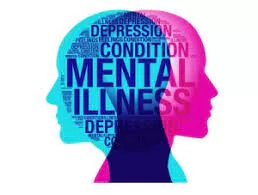Dallas, TX – High-density lipoprotein (HDL), commonly known as “good” cholesterol, may play a critical role in maintaining brain health and preventing dementia, according to groundbreaking research by scientists at UT Southwestern Medical Center. The study, published in the Journal of Clinical Medicine, sheds light on the relationship between HDL function and brain atrophy, offering new hope for strategies to preserve cognitive health in aging adults.
“Our study identified a novel role for HDL cholesterol in maintaining gray matter volume in the brain, which is essential for cognitive function in middle-aged adults,” said Dr. John Giacona, Assistant Professor of Applied Clinical Research and Internal Medicine and the study’s lead author. “This is the first study to explore the potential link between HDL function and brain volume.”
A Longitudinal Investigation
The researchers analyzed data from 1,826 participants aged 35 to 70 enrolled in the Dallas Heart Study, a 25-year longitudinal investigation of cardiovascular and cognitive health. Using advanced imaging techniques, they measured participants’ brain matter volume and fasting lipoprotein levels between 2000 and 2002, with follow-up assessments conducted between 2007 and 2009.
Anand Rohatgi, M.D., and his team at UT Southwestern’s Clinical Heart and Vascular Center evaluated HDL function, revealing that higher concentrations of small-particle HDL were associated with greater gray matter volume and improved cognitive capacity.
“Previous research has provided conflicting evidence about HDL cholesterol’s role in dementia or brain atrophy,” explained senior author Dr. Wanpen Vongpatanasin, Director of the Hypertension Section in the Division of Cardiology. “Our findings suggest that it’s not just the concentration of HDL cholesterol that matters, but its function and particle size.”
The Science Behind HDL
HDL is often celebrated for its role in cardiovascular health, where it removes “bad” low-density lipoprotein (LDL) cholesterol from blood vessels and transports it to the liver for disposal. This new study highlights an additional benefit: small HDL particles can cross the blood-brain barrier, potentially playing a protective role in the brain.
“We now need to understand how small HDL particles contribute to brain health,” Dr. Vongpatanasin said. “This could open doors to using HDL function or small HDL particle levels as markers to identify those at risk for cognitive decline.”
Future Implications
While the findings are promising, the researchers emphasize the need for further studies to confirm the link between small HDL particles and brain health. If validated, the results could pave the way for new diagnostic tools and interventions targeting cognitive decline and dementia prevention.
Dr. Giacona attributed the study’s success to the multidisciplinary collaboration at UT Southwestern, which brought together experts from cardiology, neurology, and advanced imaging. “This research underscores the interconnectedness of heart and brain health,” he said, “and expands the potential benefits of HDL cholesterol function beyond cardiovascular disease.”
As global populations age, the insights from this study could play a crucial role in addressing the growing challenges of dementia and cognitive decline.
For more information, refer to the study: John M. Giacona et al., Associations Between High-Density Lipoprotein Cholesterol Efflux and Brain Grey Matter Volume, Journal of Clinical Medicine (2024). DOI: 10.3390/jcm13206218.












